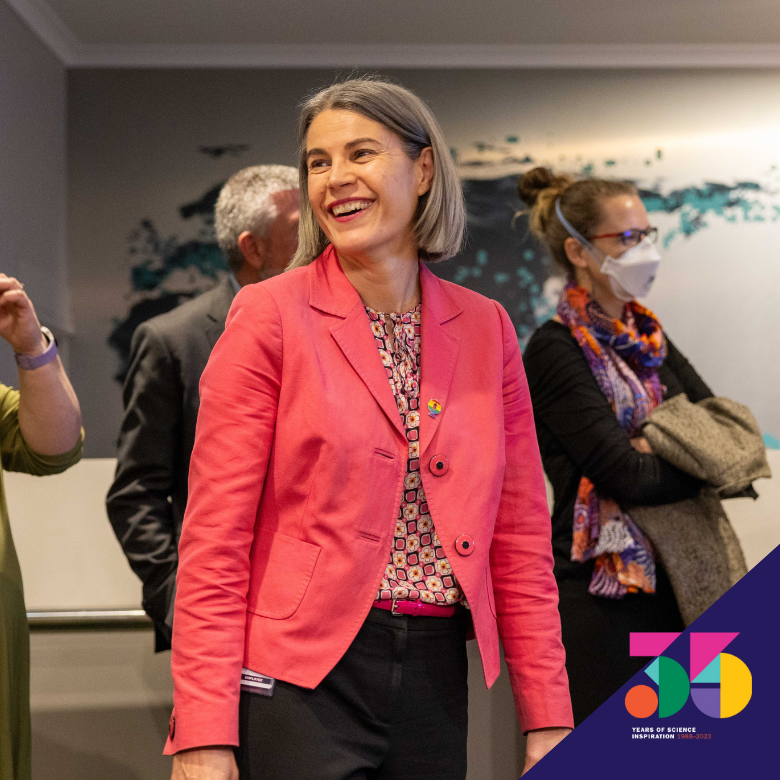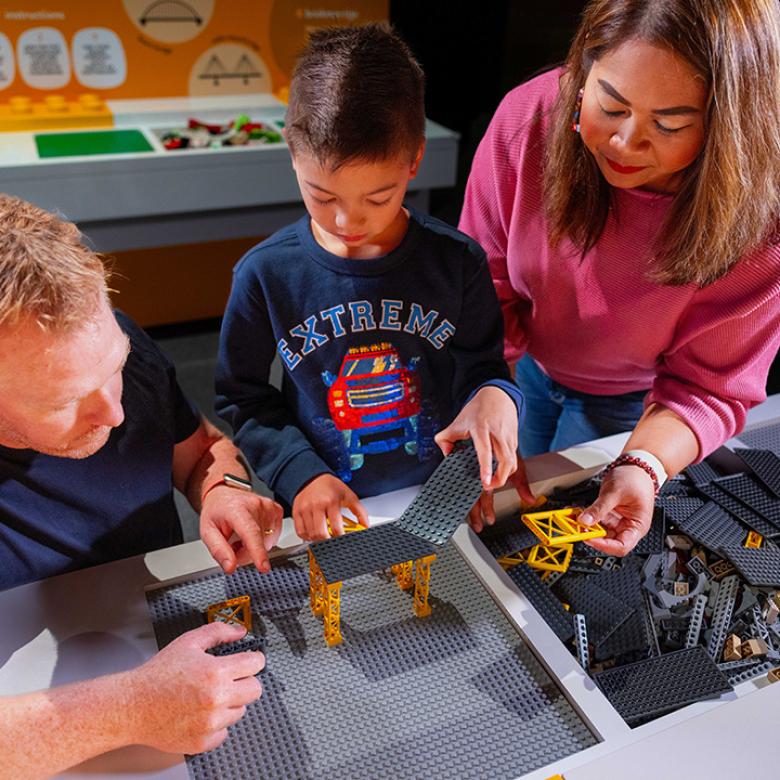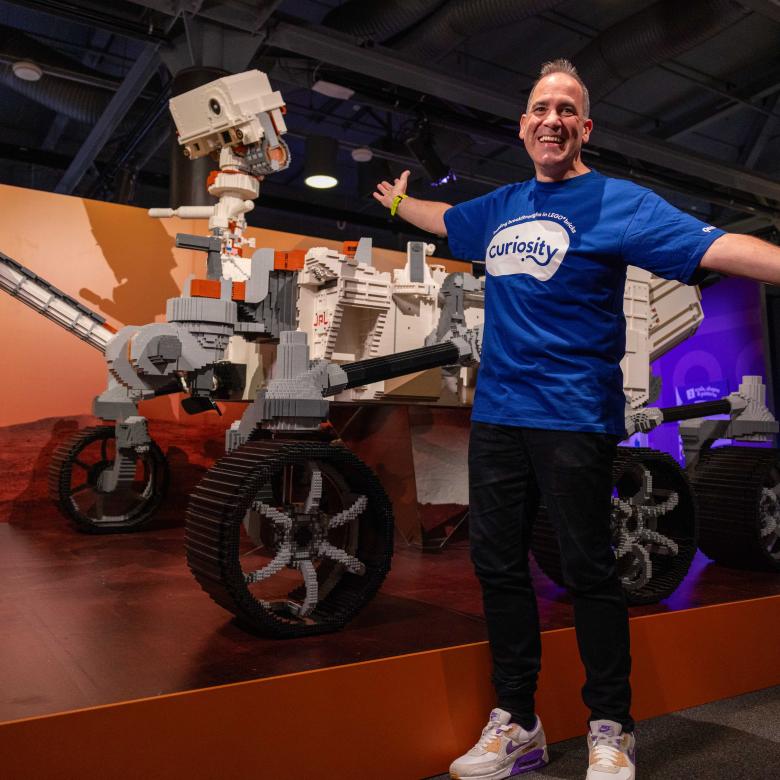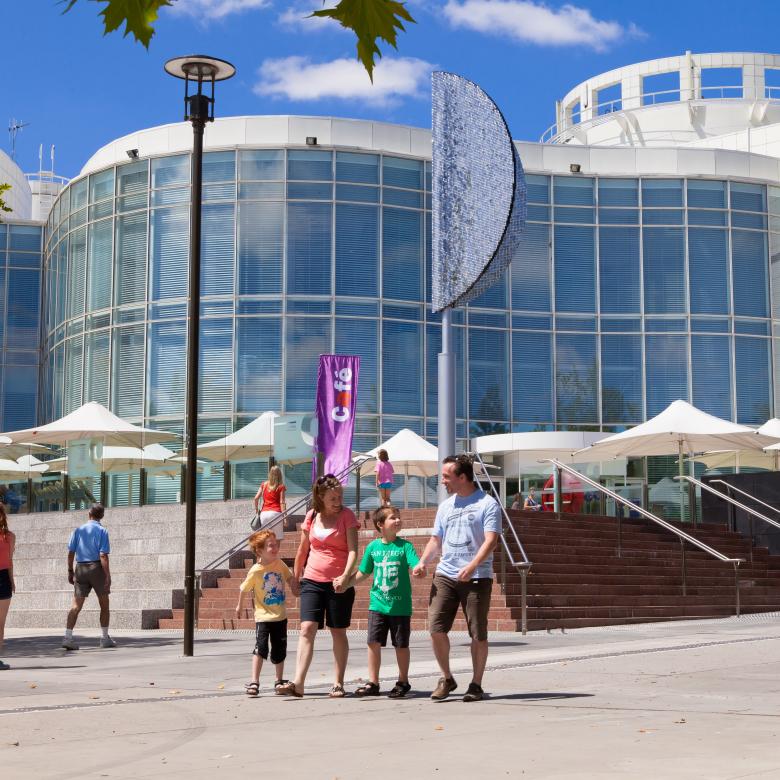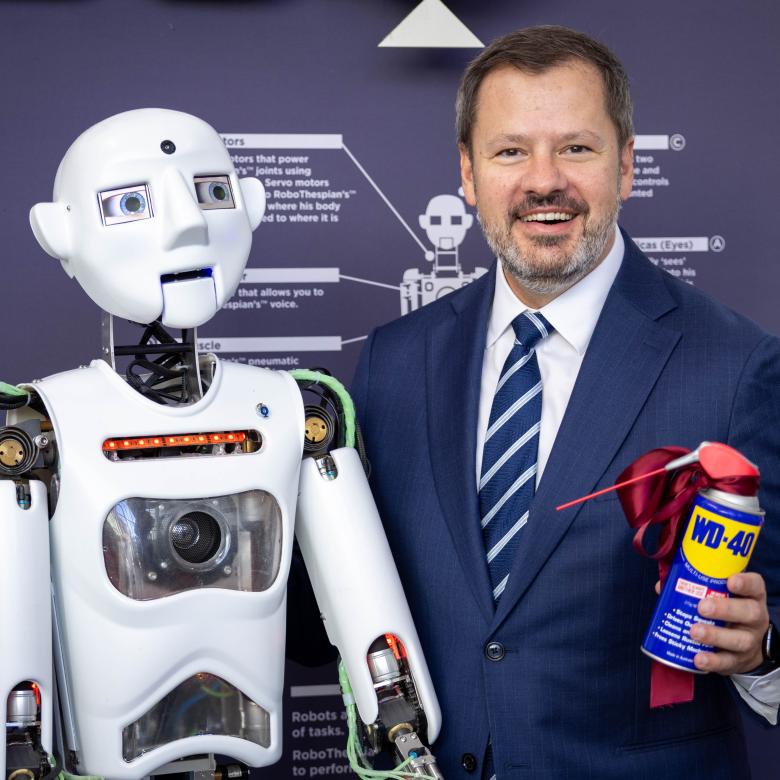Australia needs talented people with science, technology, engineering and mathematics (STEM) skills to help overcome some of the biggest challenges facing our country, and the world. This is clear to Helen Wilson, Deputy Secretary of Science and Technology with the Australian Government Department of Industry, Science and Resources. Helen sees the important role that Questacon plays in building a diverse pool of future STEM experts. 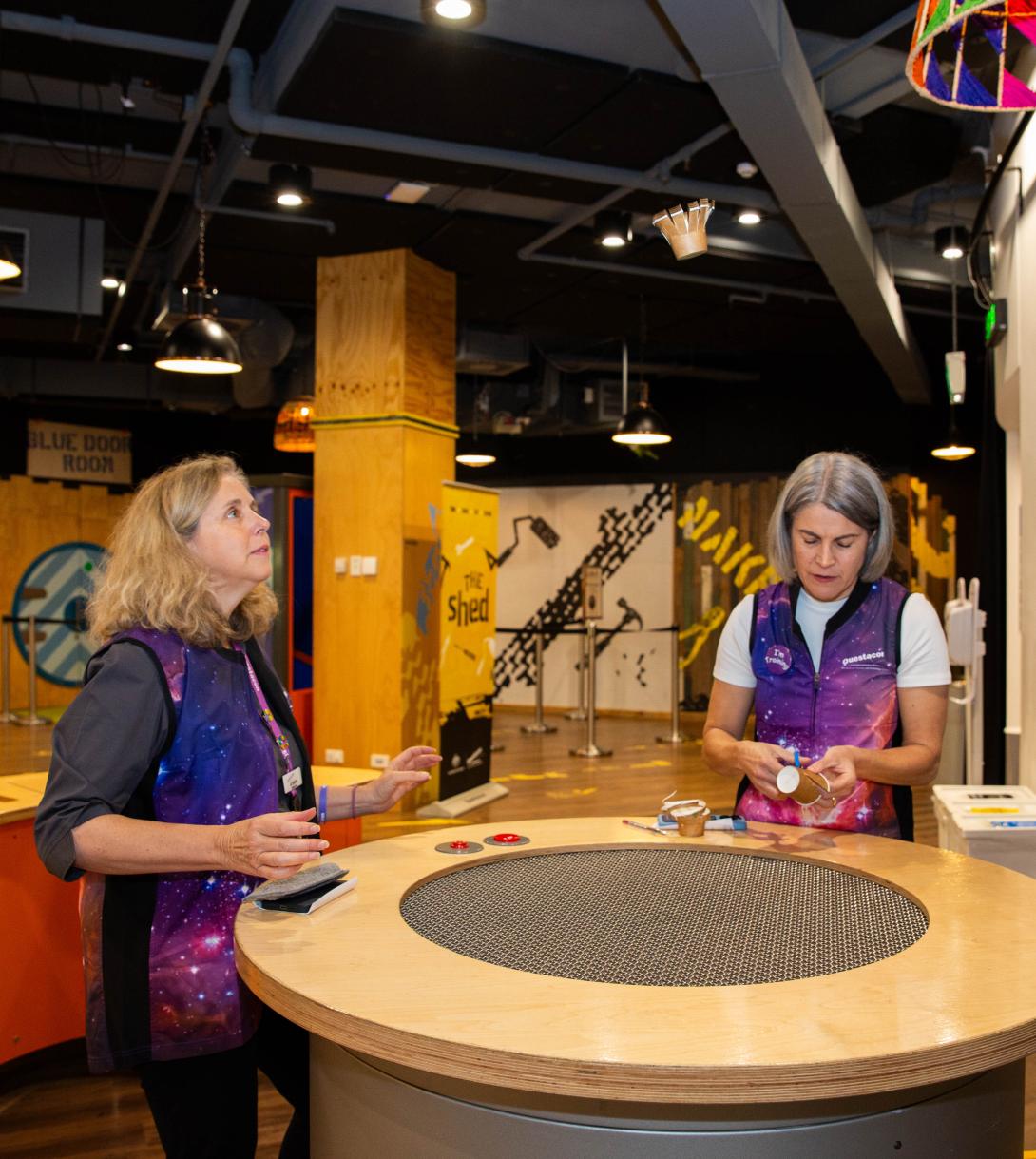
“Questacon has a unique value-add. It gets children engaged and excited about science, and plants the seeds for future careers in science and technology. The only way you’re going to attract people to study science is if you think about the 0–5 year olds. Encouraging children to engage with science and think about the careers they may have is vital, and honestly, so is just getting them excited by science.”
From the very beginning, Questacon has strived to deliver exciting, hands-on learning experiences beyond Canberra, to communities across Australia. It is this wide access to early engagement with science that is the key to increased diversity in the future STEM workforce. This is something that Helen sees as crucial to Australia’s future.
“We need diversity in STEM, because diversity leads to better outcomes. The research and the evidence are so abundantly clear on that. With our ageing population and pressing challenges like climate change, Australia will need to tap into and develop the diverse skills and experiences of groups that have traditionally been underrepresented in the STEM workforce, including women, First Nations people, and people from culturally and linguistically diverse backgrounds,” she said.
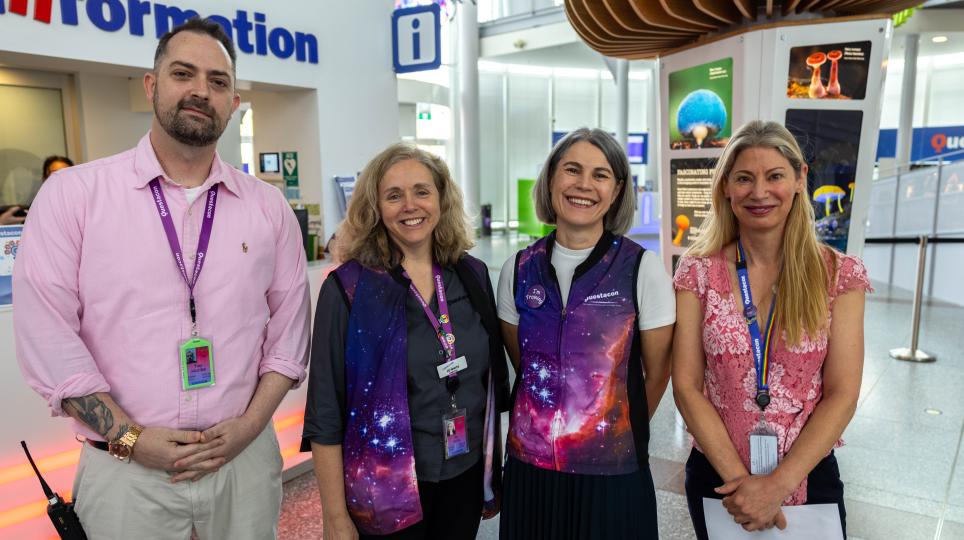 One of Questacon’s most recent efforts to embrace diversity has been the creation of the Calm Space, a state-of-the-art, nature-inspired space designed to improve the Questacon experience for young children with sensory sensitivities. “One of the things I really want to celebrate is the new Calm Space in the Mini Q gallery. Children who are neurodivergent can struggle – there’s a bit of sensory overload at Questacon. Working with experts, Questacon designed the Calm Space, recognising the needs of children who are neurodivergent and giving them access to that different learning experience.”
One of Questacon’s most recent efforts to embrace diversity has been the creation of the Calm Space, a state-of-the-art, nature-inspired space designed to improve the Questacon experience for young children with sensory sensitivities. “One of the things I really want to celebrate is the new Calm Space in the Mini Q gallery. Children who are neurodivergent can struggle – there’s a bit of sensory overload at Questacon. Working with experts, Questacon designed the Calm Space, recognising the needs of children who are neurodivergent and giving them access to that different learning experience.”
While the effects of these experiences take years to unfold, Helen knows first-hand that making science fun for children can blossom into a STEM career. “I have a son who has just completed an IT degree, and I’ve got a daughter who is studying engineering. They spent many weekends at Questacon, either with me or my parents.”
As well as sparking an interest in science, Helen says that the scientific approach of inquiry-based learning helped foster inventive and resilient mindsets in her children. “They’ve both got that fabulous ability to question and be curious and to try things, and to understand that not everything they try is going to work. I appreciate that access to hands-on experiences that they had growing up in Canberra, and that they were encouraged to try things even if they failed.”
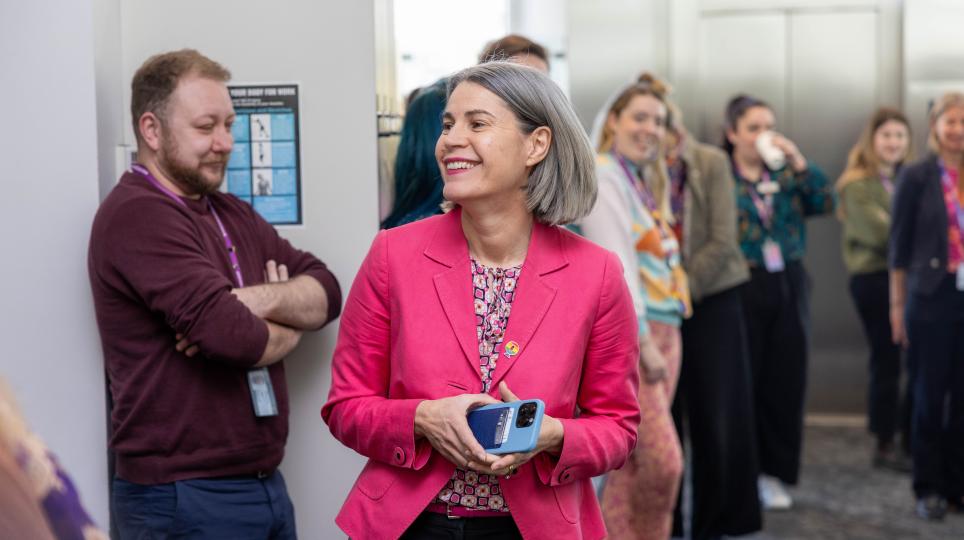 Our future lies in the hands of the generations that follow us. Making science fun and accessible to all Australian children, and supporting diversity, will help make our future strong and bright.
Our future lies in the hands of the generations that follow us. Making science fun and accessible to all Australian children, and supporting diversity, will help make our future strong and bright.
As Helen says, “It’s that ability to engage and excite children about science – without it, there’s no way we’re going to be able to fill skill gaps and achieve the diversity and outcomes that we need as a country.”
As Australia’s National Science and Technology Centre, Questacon plays an important role in achieving the strategic goals of the Australian Government through the Department of Industry, Science and Resources.

